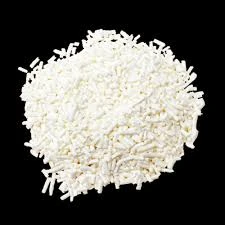
Understanding the Benefits and Uses of Monosodium L-Glutamate in Cooking and Food Production
Understanding Monosodium L-Glutamate A Flavor Enhancer
Monosodium L-glutamate, commonly known as MSG, is a flavor enhancer that has become a staple in many cuisines around the world. It is a sodium salt of glutamic acid, an amino acid that occurs naturally in many foods such as tomatoes, cheese, and mushrooms. MSG is often associated with Asian cuisine, particularly in dishes that are often prepared in Chinese restaurants. However, its uses extend far beyond just these culinary traditions.
MSG was first discovered in 1908 by Japanese chemist Kikunae Ikeda, who isolated it from kombu, a type of seaweed. He recognized that glutamate was responsible for the unique savory taste known as umami, which is often described as a rich or meaty flavor. This discovery led to the commercialization of MSG, and it quickly gained popularity both in Japan and internationally. Since then, MSG has been incorporated into various processed foods, ready-to-eat meals, snack items, and seasonings to enhance their taste.
Understanding Monosodium L-Glutamate A Flavor Enhancer
Despite its culinary benefits, MSG has been the subject of controversy and debate since its introduction. Some individuals claim to have experienced adverse reactions to consuming MSG, often referred to as Chinese restaurant syndrome. Symptoms reported include headaches, flushing, sweating, and a general feeling of discomfort. However, scientific studies have not conclusively proven these claims, and the majority of research indicates that MSG is generally safe for consumption in normal dietary amounts.
monosodium l glutamate

Regulatory bodies, including the U.S. Food and Drug Administration (FDA) and the World Health Organization (WHO), have deemed MSG safe for the general population. The FDA classifies it as generally recognized as safe (GRAS), which is a designation given to substances that are considered safe by experts. Despite these affirmations, the stigma around MSG persists in some segments of society, primarily due to anecdotal reports and misconceptions about its safety.
It is worth noting that people’s reactions may vary, and a small percentage of individuals may be sensitive to MSG. If someone experiences adverse symptoms after consuming it, it may be wise for them to limit their intake, just as they would with any ingredient that does not agree with them. The key to enjoying dishes with MSG is moderation and understanding one’s personal tolerances.
In the culinary world, MSG is not just a controversial ingredient but also a useful tool. Many professional chefs and home cooks alike appreciate the depth of flavor it can add to dishes. Used judiciously, MSG can enhance the umami notes in soups, sauces, marinades, and even may make vegetables more palatable for those who aren't fond of them.
In conclusion, monosodium L-glutamate is a powerful enhancer that can elevate the flavor of food. While it has faced criticism and scrutiny, scientific research has generally supported its safety for consumption. Understanding its role and effects in culinary applications allows both consumers and chefs to make informed choices about its use in their cooking. As we continue to explore the rich tapestry of flavors in global cuisines, MSG remains an important ingredient that can help bridge culinary traditions and enhance our dining experiences.
-
The Safety Challenges of Ammonium Nitrate FertilizerNewsJun.26,2025
-
The Critical Role of Mining ChemicalsNewsJun.26,2025
-
Shelf Life of Glacial Acetic Acid Food GradeNewsJun.26,2025
-
Enhancing PVC Longevity with 1,2,3-Benzotriazole InnovationsNewsJun.26,2025
-
China’s Dominance in Food Additive ProductionNewsJun.26,2025
-
Can Aluminum Hydroxide Replace More Toxic Alternatives?NewsJun.26,2025
-
PE and PP Plastics with Benzotriazole AdditivesNewsJun.12,2025
Hebei Tenger Chemical Technology Co., Ltd. focuses on the chemical industry and is committed to the export service of chemical raw materials.
-

view more DiethanolisopropanolamineIn the ever-growing field of chemical solutions, diethanolisopropanolamine (DEIPA) stands out as a versatile and important compound. Due to its unique chemical structure and properties, DEIPA is of interest to various industries including construction, personal care, and agriculture. -

view more TriisopropanolamineTriisopropanolamine (TIPA) alkanol amine substance, is a kind of alcohol amine compound with amino and alcohol hydroxyl, and because of its molecules contains both amino and hydroxyl. -

view more Tetramethyl Thiuram DisulfideTetramethyl thiuram disulfide, also known as TMTD, is a white to light-yellow powder with a distinct sulfur-like odor. It is soluble in organic solvents such as benzene, acetone, and ethyl acetate, making it highly versatile for use in different formulations. TMTD is known for its excellent vulcanization acceleration properties, which makes it a key ingredient in the production of rubber products. Additionally, it acts as an effective fungicide and bactericide, making it valuable in agricultural applications. Its high purity and stability ensure consistent performance, making it a preferred choice for manufacturers across various industries.











